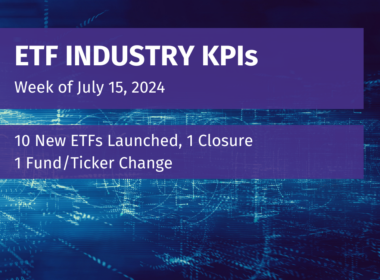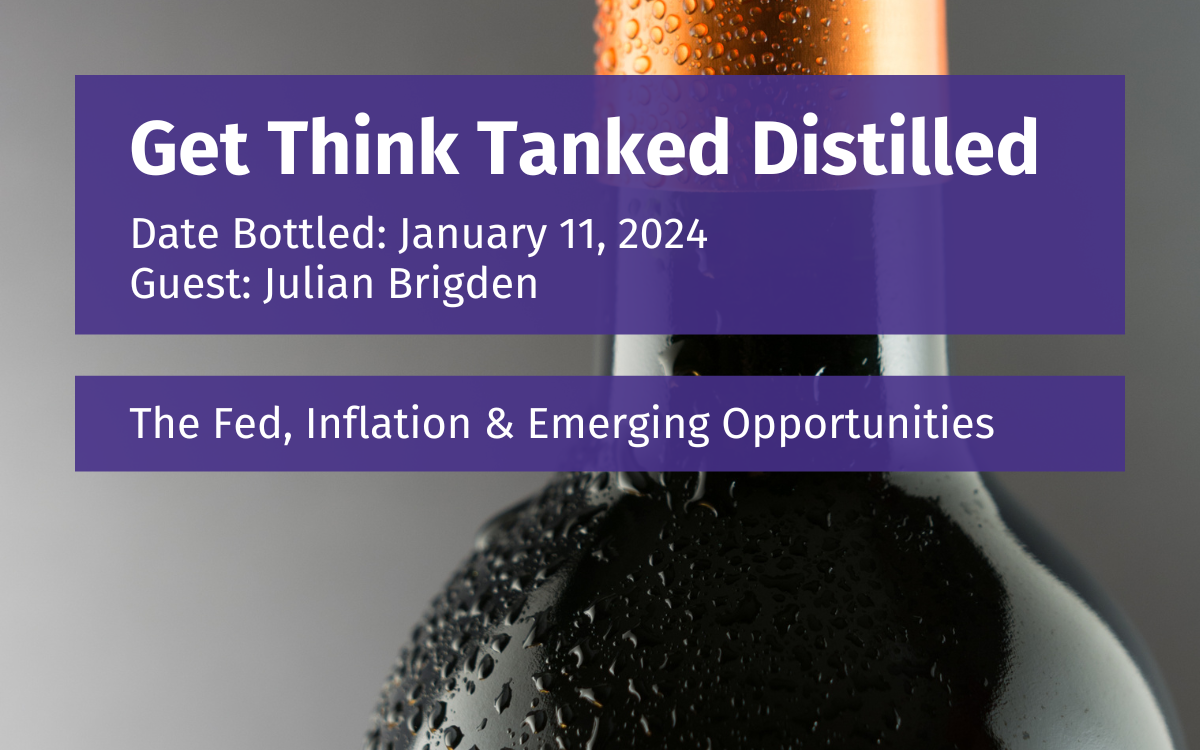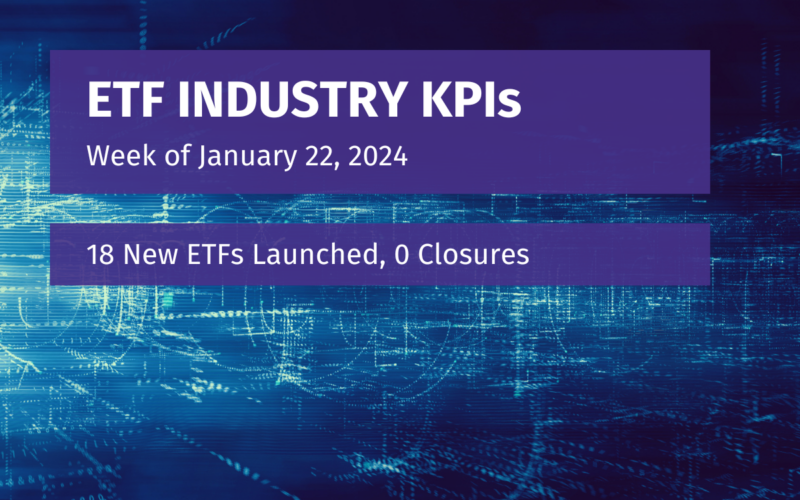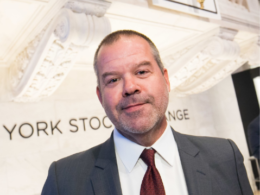Will the U.S. economy achieve a soft landing, or is a recession on the horizon? Is the labor market still rock solid or are the cracks starting to show? Julian Brigden, co-founder of Macro Intelligence 2 Partners, has been scouring the global economic landscape for decades trying to answer those questions and more! He joins the ETF Think Tank to offer his thoughts on the current lay of the land, including the Fed, inflation, and emerging opportunities for investors.
Brigden explains that his firm uses a very simple approach. It starts with a top down view of the economy and then looks at where the markets are currently priced in. If he feels that his views aren’t being factored in, he suggests trades. The overall macro view to start things off helps to create a directional bias and then he looks for opportunities based on that. If he feels that the risk/reward is asymmetric, then he’s likely to establish a position.
Currently, Brigden feels there’s a big market disconnect regarding Fed rate cuts. Right now, nobody is betting that rates will stay the same, let alone move higher. He agrees that central banks are probably going to cut in 2024, but he doesn’t know if there’s a justification for it. The Fed should be looking for opportunistic disinflation and easings should be fine tuning. The markets, however, think the Fed is just supposed to be their benevolent friend. The idea of contemplating rate cuts while services & core inflation is running at 4% is absurd. Nominal GDP is projected to be 6% this quarter. If you have real wage growth at 5-6%, how is that not going to be inflationary? He feels like we could be in a Goldilocks scenario for a little while before inflation potentially explodes again.
Brigden believes that the market is misunderstanding the real situation – how do you reconcile your view of the world with the fact that the market is misinterpreting things? Investors should be looking for where the risk/reward trades are. If you think there’s a recession, you probably just dump equities since those are likely to be the most mispriced. He notes that the Fed Funds rate typically goes to 100 bps above nominal GDP at its peak. That would put us at 7%+ and it’s pretty clear that the Fed isn’t pursuing that path. Investors have gotten so used to rates going up and down that they miss out on the traditional relationship between these two factors.
The fixed income market is likely to get hurt the most when the market realizes they won’t get the rate cuts they’re expecting. We didn’t get the slowdown we expected, so bond prices took a hit. If investors are pricing in a half dozen cuts in 2024 and they only end up getting a couple, yields need to move higher in to reflect that. Brigden said that his macro signals indicated that they should sell bonds at 4% and it ended up being one of the best trades of the year.
Brigden also sees international investing as a potentially interesting opportunity. With the U.S. as the global reserve provider, running significant deficits, he notes that international investors are buying U.S. equities. Corporations were buying back their own shares and foreign investors decided they needed to get in on it too, which turned into a self-reinforcing mechanism. If we end up going into a recession, the money goes home and that helps other investments outperform. Brigden suggests that if you invest in U.S. equities over the next 10 years, it could mean you’ll miss substantial opportunities elsewhere.
Other key takeaways:
- We have this misinterpretation that the markets drive the economy, not the other way around. You can’t lower nominal GDP without impacting the labor market. Stocks are already rising, so where is this weakness in the labor market going to come from?
- A lot of people still aren’t particularly enticed by 5% Treasury bill yields because they’ve gotten used to 15-20% equity returns.
- Brigden isn’t focusing on credit quality as a catalyst right now because the economy is still in good shape. Credit spreads narrowed because growth didn’t slow down. You only get worried when unemployment goes higher.
- Do you diversify aggressively? You have to start looking for opportunities, but you need to see the dollar break down. That’s the ultimate arbitrator.
- Japan looks like it’s starting to break out. Brigden thinks the earthquake and politics have dampened the outlook in the near-term, but he’s watching levels to get back in. He says we’re not quite there yet.
Disclosure
All investments involve risk, including possible loss of principal.
The material provided here is for informational purposes only and should not be considered an individualized recommendation or personalized investment advice. The investment strategies mentioned here may not be suitable for everyone. Each investor needs to review an investment strategy for his or her own particular situation before making any investment decision.
All expressions of opinion are subject to change without notice in reaction to shifting market conditions. Data contained herein from third-party providers is obtained from what are considered reliable sources. However, its accuracy, completeness, or reliability cannot be guaranteed.
Examples provided are for illustrative purposes only and not intended to be reflective of results you can expect to achieve.
The value of investments and the income from them can go down as well as up and investors may not get back the amounts originally invested, and can be affected by changes in interest rates, exchange rates, general market conditions, political, social, and economic developments, and other variable factors. Investment involves risks including but not limited to, possible delays in payments and loss of income or capital. Neither Tidal nor any of its affiliates guarantees any rate of return or the return of capital invested. This commentary material is available for informational purposes only and nothing herein constitutes an offer to sell or a solicitation of an offer to buy any security and nothing herein should be construed as such. All investment strategies and investments involve risk of loss, including the possible loss of all amounts invested, and nothing herein should be construed as a guarantee of any specific outcome or profit. While we have gathered the information presented herein from sources that we believe to be reliable, we cannot guarantee the accuracy or completeness of the information presented and the information presented should not be relied upon as such. Any opinions expressed herein are our opinions and are current only as of the date of distribution, and are subject to change without notice. We disclaim any obligation to provide revised opinions in the event of changed circumstances.
The information in this material is confidential and proprietary and may not be used other than by the intended user. Neither Tidal nor its affiliates or any of their officers or employees of Tidal accepts any liability whatsoever for any loss arising from any use of this material or its contents. This material may not be reproduced, distributed, or published without prior written permission from Tidal. Distribution of this material may be restricted in certain jurisdictions. Any persons coming into possession of this material should seek advice for details of and observe such restrictions (if any).












